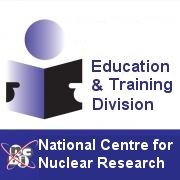CANCELLED (ATM nucleoshuttling in individual radiosensitivity: consequences from radiotherapy to radiodiagnosis)
2017.03.09 11:55 - Anna RędaszekMore than a century after the discovery of X rays, the effects of ionising radiation are still misunderstood. In particular, a better knowledge of individual radiosensitivity could lead to a better prediction of radio induced risk of cancer and acute reactions after radiotherapy.
As part of the research conducted by the Radiobiology Group of UMR Inserm 1052 (Cancer Research Center of Lyon), the accumulation of radiobiological data from radiosensitive patients allowed to initiate a theory based on the ATM protein transit from cytoplasm to nucleus. ATM is the major actor in the response to ionising radiation. Specifically, the researchers of the Group proposed the following model: irradiation produces monomerization of cytoplasmic forms of ATM protein. ATM monomers diffuse into the nucleus to ensure the recognition and repair of DNA double-strand breaks (DSBs), the key damage response to radiation. Any delay in this transit would lead to radiosensitivity.
In this course we will discuss the impact of ATM nucleoshuttling at high and low dose of radiation and introduce the concept of pro and anti episkevia by presenting some examples of radiosensitive genetic syndromes that are mutated in cytoplasmic proteins.
NCBJ bus leaves to Świerk at 10.25 am from entrance gate to the Hoża 69 premises in Warsaw.
Professor Ludwik Dobrzyński
| Attachment | Size |
|---|---|
| 29.17 KB | |
| 24.88 KB |













